UN Calls For ‘Serious’ IAEA-Iran Talks As EU Lost Hope On Nuclear Deal
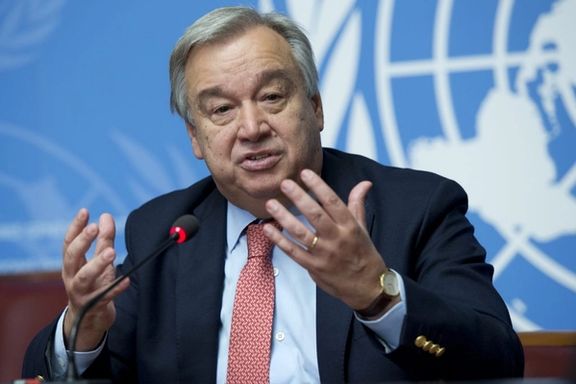
The UN Secretary-General called on Iran Wednesday to hold a “serious dialogue” with its nuclear watchdog, the IAEA, during the ongoing nuclear deal negotiations.

The UN Secretary-General called on Iran Wednesday to hold a “serious dialogue” with its nuclear watchdog, the IAEA, during the ongoing nuclear deal negotiations.
Ahead of the start of the UN General Assembly, Antonio Guterres said the International Atomic Energy Agency’s “independence exists, must be preserved and is essential. The IAEA cannot be an instrument of parties against other parties.”
Tehran’s demands that the IAEA shut its probe into suspected Iranian nuclear activity have become a key sticking point as the talks to revive the 2015 deal drag on.
Also on Wednesday, EU foreign policy chief Josep Borrell described the talks to bring Iran and the US back into the deal as an “stalemate,” saying that “I am afraid that with the political situation in the US, and so many directions without being conclusive, now we are going to stay in a kind of stalemate.”
He added that over the past couple of months, “the proposals were converging but unhappily, after the summer, the last proposals are not converging -- they are diverging,” highlighting that “The last proposals from the Iranians were not helping because we were almost there, then new proposals came and the political environment is not the most propitious. I am sorry to say, but I don't expect any breakthrough in the next days.” “From my side, I don't have anything more to propose.”
Later in the day, two-thirds of the IAEA's 35-nation Board of Governors endorsed a non-binding statement by the United States, Britain, France and Germany pressing Iran to explain about uranium traces found at three undeclared sites.
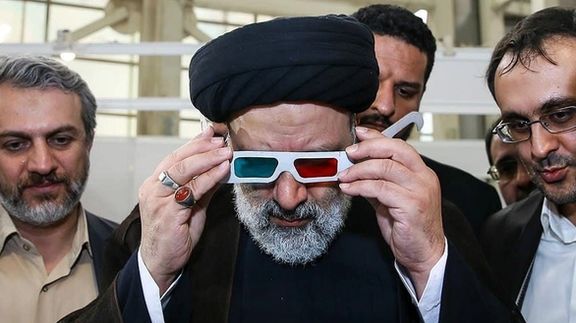
The revelation that Iran’s president Ebrahim Raisi has no Twitter account has caused a fiasco, because an existing account was tweeting in his name until now.
Mohammad-Mehdi Rahimi, head of Raisi’s public relations office on Tuesday said the president has no account on Twitter. The announcement has left many wondering about the identity of those behind the account thought to be the president's official account, as it introduces itself. The account has been tweeting in his name since before he won the controversial presidential elections of June 2021.
According to Twitter the account was created in March 2021. It has been in regular use since May 26, 2021, more than 3 weeks before the election, and has over 173K followers including Chief Justice Gholam-Hossein Mohseni Ejei, Vice President Mohammad Mokhber, Foreign Minister Hossein Amir-Abdollahian, and the official news agency IRNA. The last tweet from the account which posted a quote from the president was posted on August 12th.
Most official news agencies and pro-Raisi news websites retweeted the tweets from @raisi.com account in Raisi's name throughout this time but the president’s media team never denied their authenticity until now.
“Denial of authenticity of Raisi's Twitter is one of the greatest blunders of the president’s media team … The question arises, if the account belongs to him, how come nobody is taking responsibility for it. Has something been said there that doesn’t suit the purposes of Raisi's team?” reformist Rouydad24 asked Wednesday.
The second scenario is that there is a Twitter account in Raisi's name that nearly all ministers, vice presidents, as well as the official government and cabinet accounts follow, retweet, and quote but nobody knows who it belongs to, Rouydad24 added.
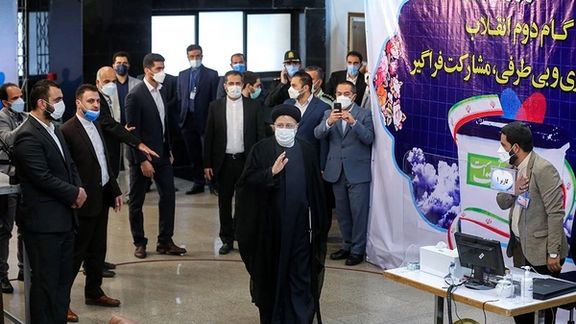
“This is even a bigger blunder. One should ask not only the administration’s media team, but also security and intelligence bodies, how such a blunder could happen without anyone noticing?How is it that a fake Twitter account was publishing the Iranian government and president’s official stances, and no one investigated the matter for once?” Rouydad24 asked.
The semi-official Iranian Students News Agency, ISNA, was the first to report on June 1, 2021 that Raisi had officially joined Twitter. ISNA provided a link to the account.
Many of the earlier tweets posted on the account were written in first person voice and expressed then-Chief Justice and presidential candidate Ebrahim Raisi’s views on domestic and foreign policies, including accusations against his predecessor’s government and his election rivals.
“I have been making calls and consultations to make the elections more competitive and inclusive, which you and [the disqualified candidates] themselves may not know about, since yesterday evening when I found out about the vetting results,” the very first tweet made from the account said.
The tweet referred to the controversial disqualification of three of Raisi’s main rivals -- former parliament speaker Ali Larijani, former president Mahmoud Ahmadinejad and Vice President Es’haq Jahangiri – by the election watchdog, the Guardian Council.
Later tweets, after Raisi took office, often described his administration's approach to US sanctions, negotiations to restore the 2015 nuclear deal with world powers (JCPOA), selling oil, and regional and international matters. These tweets were regularly quoted by both domestic and foreign media.
Instagram is the only major social media platform not blocked in the country where other platforms such as Twitter, Facebook, YouTube, WhatsApp, and Telegram cannot be accessed without the use of anti-filtering software and VPNs (virtual private networks).
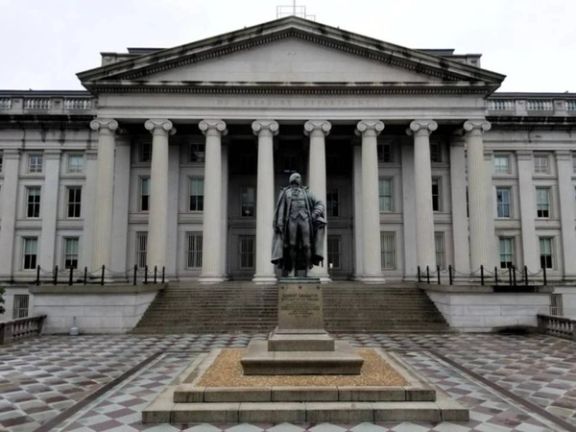
The US Justice Department charged Wednesday three more Iranian citizens with cyberattacks that targeted power companies, local governments and small businesses and nonprofits.
According to the prosecutors, the suspects targeted hundreds of victims in the US and other countries, encrypting and stealing data from victims’ networks and threatening to release it unless exorbitant ransom payments were made. In some cases, the victims made those payments.
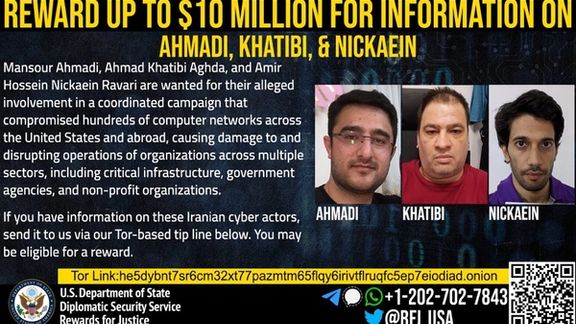
A senior Justice Department official said that the hackers are not believed to have been working on behalf of the Iranian government but instead for their own financial gain, and some of the victims were even in Iran.
The case was filed in federal court in New Jersey, where a municipality in Union County was hacked last year. One of the victims was a domestic violence shelter in Pennsylvania, which – according to the indictment -- was extorted out of $13,000 to recover its hacked data.
In the latest actions as part of the US government’s response to the malicious cyber activities by Iranian actors, the Department of the Treasury’s Office of Foreign Assets Control (OFAC) also sanctioned ten individuals and two entities Wednesday for their roles in malicious cyber acts, including ransomware activity.
The OFAC said all the individuals and entities designated Wednesday are affiliated with Iran’s Revolutionary Guard (IRGC).
Under Secretary of the Treasury for Terrorism and Financial Intelligence Brian E. Nelson said, “We will continue to take coordination action with our global partners to combat and deter ransomware threats, including those associated with the IRGC.”
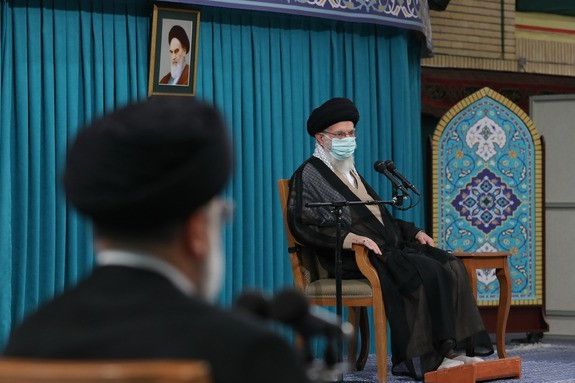
Iran’s ruler Ali Khamenei has been absent from public view for two weeks, while some say that he has delegated the nuclear issue to President Ebrahim Raisi.
Khabar Online website has quoted reformist commentator Abbas Abdi on Wednesday as saying, "I have been informed by reliable sources that the leader has vested Rasi with the responsibility of deciding on the nuclear issue."
In the absence of Khamenei from the public scene for about two weeks, the handover gives rise to speculations whether the leader delegated part of his authority because of a medical emergency, or he simply wanted to shift the responsibility for a key decision to Raisi so that he could remain in a position to criticize any possible deal, if things do not work well.
Abdi noted that although it has been said over and over in Iran that accepting or rejecting a nuclear deal can be done only by the Supreme Leader, it is now evident that Raisi is in charge of the nuclear deal and whether he signs an agreement or rejects it, he will be responsible for it.
The Iranian government has not denied social media reports about Khamenei's illness. Meanwhile, the leader's office has cancelled two scheduled meetings with the Assembly of Experts members and Bassij militia during the past days.
In another development, a picture released by the official news agency IRNA last week about Khamenei's meeting with athletes, turned out to be at last three years old and the agency pulled the story. All this may indicate that Khamenei is not physically in a good position for public appearances.
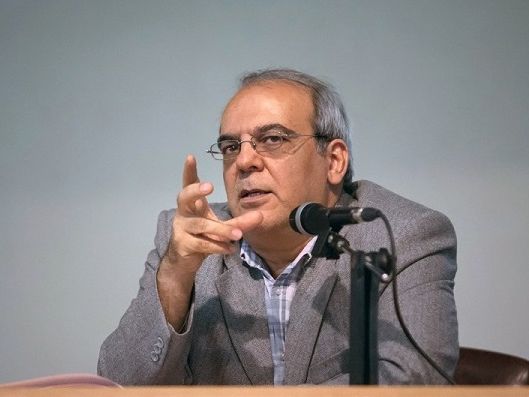
Khamenei's previous absences ended with his powerful re-emergence to deny the report and discredit foreign media who went out of their way to say he was dead. That kind of a publicity stunt cannot be ruled out before more solid evidence emerges about his condition.
In still another development, former lawmaker Ahmad Mazani, a reformist figure, said in an interview with conservative Nameh News that Raisi and Majles Speaker Mohammad Bagher Ghalibaf should be held accountable for the consequences of any delay in reviving the 2015 nuclear agreement, the JCPOA. Like Abdi, Mazani also said, "The news that has reached us says that the Supreme Leader has delegated the responsibility for the revival of the JCPOA to President Raisi as the chairman of the Supreme Council of National Security."
Nonetheless, Abdi noted that still anyone who thinks Khamenei does not have the final say on the nuclear case, has no proper understanding of the status of the Supreme Leader and the significance of a nuclear deal for the Islamic Republic.
Abdi said, this explains why and how the Iranian parliament approved the JCPOA in 2015 within 20 minutes and the Guardian Council uncharacteristically did not find any fault in the decision made by the Majles.
In another development, the Jomhouri Eslami [Islamic Republic] newspaper, a daily founded by Khamenei, wrote in its editorial on Wednesday that "The key to lift the sanctions on Iran is in the hands of the Raisi Administration." The daily further called on the government to "end this story."
The editorial went on, "Now the people expect the Iranian government to solve this problem in this suitable situation and conclude several years of negotiations from a position of power."
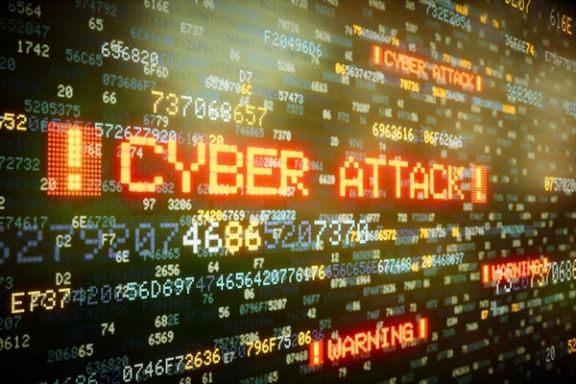
Iran-sponsored cyberspies have leveled up their techniques, using fake personas of real people to add credibility to the phishing emails designed to deliver malware.
According to a Wednesday report by Security firm Proofpoint, Iran-aligned espionage threat actor TA453 deployed a social engineering impersonation technique, informally called Multi-Persona Impersonation, in mid-2022 in which the threat actor uses at least two stolen or hijacked personas on a single email thread to convince targets of the legitimacy of the campaign. The personas used are real people that the target knows and trusts.
TA453 historically targeted academics, policymakers, diplomats, journalists, and human rights workers, and would engage in one-to-one conversations with the targets but this changed since they started the new technique. For example, the actors included a variety of questions intended to generate a dialogue about Israel, the Persian Gulf States, and the Abraham Accords, while these questions are generally meant to establish a pretext for sending a follow-up credential harvesting link or to deliver a malicious document.
The company’s researchers said they observed the activities of TA453 throughout late 2021 and through 2022 – which overlaps with activity tracked as Charming Kitten, PHOSPHORUS, and APT42 – noting that TA453 innovated its approach in a quest to fulfill its intelligence priorities. In late June 2022, this evolution resulted in campaigns utilizing what Proofpoint calls Multi-Persona Impersonation (MPI), a new subset of impersonation.
The security firm described the method as “an intriguing technique” because it requires more resources be used per target -- potentially burning more personas -- and a coordinated approach among the various personalities in use by TA453.
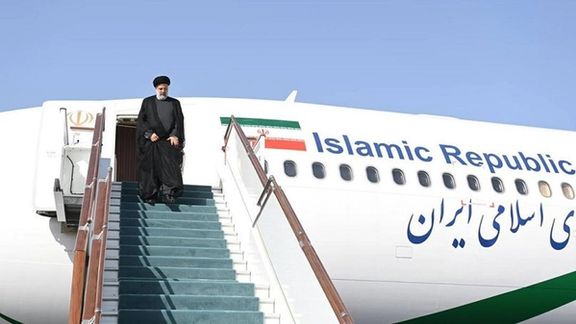
Iranian President Ebrahim Raisi arrived in the Uzbek city of Samarkand on Wednesday for a summit of the Shanghai Cooperation Organization (SCO).
Welcomed by Uzbekistan's Prime Minister Abdulla Aripov, Raisi and his accompanying delegation are also scheduled to hold meetings with the SCO's heads of state on the sidelines of the summit. Before embarking on the three-day visit, Raisi said he was going to Uzbekistan at the invitation of his Uzbek counterpart Shavkat Mirziyoyev.
"In the first step of developing the neighborhood policy, we were able to strengthen mutual political trust in the region, and in the second step, we are pursuing the effective role of the Islamic Republic of Iran and its active presence in the region," he said.
Iran has been hoping to become a full member of the Shanghai Organization for many years, and at last year's meeting of the organization, it was agreed that Iran would change its status from an observer member to a permanent member. Tehran started a formal process for accession to the bloc in March, and is expected to complete the accession procedure next year.
Becoming a SCO member helps the Islamic Republic take the advantage of using the infrastructure that exists in Asia and in the neighboring countries, Raisi claimed.
Iran's Deputy Foreign Minister for Economic Diplomacy, Mehdi Safari, said on Wednesday that the status of Iran’s membership will be determined after this trip.
Earlier on Wednesday, government's spokesman Ali Bahadori Jahromi said the draft legislation outlining Iran's membership in the organization had been submitted to parliament for approval.